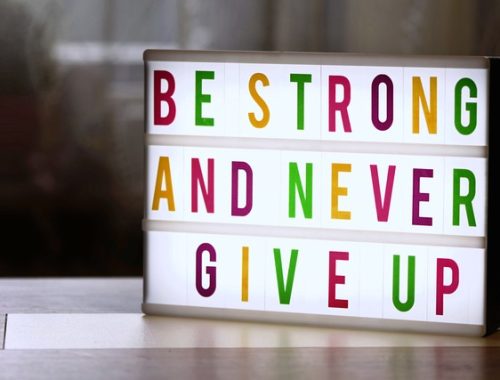
Self Care for Professionals: Finding Balance in a Hectic Life
In today’s fast-paced world, self care for professionals is something that is hard to find time for. As a professional, finding balance between work responsibilities, personal commitments, and self-care often feels like a juggling act. Each day, you face a whirlwind of tasks that leave little room to breathe, let alone relax. However, finding balance is essential for your mental, emotional, and physical health, allowing you to perform at your best both in and outside of work. Taking the time to prioritize self-care and finding balance can transform your productivity, happiness, and overall quality of life.
Understanding the Importance of Finding Balance
Before diving into specific strategies, it’s essential to recognize why finding balance should be a priority. Without balance, you’re more likely to experience burnout, stress, and fatigue, which can negatively affect your health and career. Constantly running on empty reduces your ability to make clear decisions, leaving you feeling overwhelmed. In contrast, when you focus on finding balance, you’re better equipped to handle challenges and make meaningful progress in all areas of your life.
Assessing Your Current Work-Life Balance
To begin the journey of finding balance, take a close look at your current habits and routines. Reflect on how much time you devote to work versus personal activities. Are you regularly bringing work home? Do you feel guilty when you take breaks? If so, these may be signs that you need to focus on finding balance more intentionally.
Once you identify areas where you feel stretched thin, consider what changes would be most beneficial. Finding balance often requires making small adjustments that can have a big impact, such as setting specific boundaries between work and personal time.
Setting Boundaries for Finding Balance
One of the most effective ways to work towards finding balance is by setting boundaries. You might feel that saying “no” or declining additional tasks isn’t an option. However, it’s crucial to protect your time and energy. Define work hours and commit to ending your day at a reasonable time. Setting boundaries also includes creating a physical separation between your work and home life, especially if you work from home. Designate a workspace and avoid bringing work-related items into other parts of your living space.
Establishing these boundaries is crucial to finding balance. When you stick to them, you allow yourself the space to recharge, preventing feelings of exhaustion and stress. Learning to say no, prioritizing your workload, and creating a designated workspace are all essential steps in finding balance.
Incorporating Physical Activity for Stress Relief
Exercise plays a key role in finding balance as it alleviates stress, boosts energy, and improves mood. Incorporating physical activity into your daily routine helps you release tension and clear your mind. You don’t need to spend hours in the gym. A short walk, a quick yoga session, or a few minutes of stretching at your desk can be enough to refocus your energy.
Finding ways to include physical activity in your schedule is an investment in your long-term well-being. Regular exercise not only promotes physical health but also strengthens your resilience, making finding balance more attainable. As a professional, balancing demands with regular physical activity allows you to recharge, ultimately helping you achieve your goals without compromising health.
Embracing Mindfulness for Finding Balance
Mindfulness is a powerful tool for finding balance because it encourages you to remain present, reducing stress and improving your focus. In the midst of a busy day, practicing mindfulness can help you take a step back and assess situations objectively. Simple practices like deep breathing, meditation, or even pausing to appreciate the moment can be transformative.
By incorporating mindfulness practices, you create a buffer against stress. Not only does this enhance your sense of well-being, but it also boosts your ability to make decisions calmly, allowing you to navigate challenges more effectively. Building mindfulness into your daily life will greatly aid in finding balance.
Prioritizing Self-Care as Part of Finding Balance
Self-care is an essential component of finding balance, yet it’s often neglected. Prioritizing activities that nurture you, such as reading, spending time with loved ones, or indulging in hobbies, can bring a sense of fulfillment and happiness. Think of self-care as more than just occasional pampering; it’s a daily necessity that allows you to recharge and reset.
Taking time for self-care helps prevent burnout and cultivates resilience, which is crucial in the pursuit of finding balance. No matter how demanding your career, carving out moments of self-care ensures you’re replenishing the energy needed to maintain a healthy balance.
Building Strong Social Connections
Finding balance isn’t only about managing work; it’s also about nurturing relationships. As a professional, you may sometimes feel too busy to socialize, but meaningful relationships are critical for emotional well-being. Reach out to friends, family, or colleagues regularly, even if it’s just a quick chat. These connections can act as a support system, providing comfort and reducing stress.
Balancing your social life with work allows you to recharge emotionally, ultimately making you more effective in your career. By making time for social connections, you create a well-rounded life that reflects your values, helping you in finding balance.
Planning and Prioritizing to Maintain Balance
Effective time management is key to finding balance. Each morning, list the most important tasks you need to complete and prioritize them. This helps you focus on meaningful work rather than getting sidetracked by less important tasks. Additionally, consider setting aside specific times to check emails or take calls to minimize interruptions.
When you prioritize tasks, you’re less likely to feel overwhelmed by your workload. Having a clear plan allows you to approach your day with intention, maximizing productivity and enabling you to accomplish your goals without compromising your well-being. Time management is a valuable tool in finding balance and maintaining it.
Allowing Yourself to Unplug
In today’s digital age, finding balance also means knowing when to unplug. Being constantly connected can lead to information overload, increasing stress and reducing focus. Make a conscious effort to step away from screens periodically. Set a time each day to turn off notifications and disconnect from work emails or social media.
Unplugging gives your mind a chance to rest, improving your ability to concentrate and boosting creativity. Establishing a technology-free time can be one of the most powerful steps toward finding balance, as it allows you to reconnect with yourself and recharge.
Celebrating Small Wins
Finding balance is a journey, and celebrating small achievements along the way can help keep you motivated. Acknowledge the progress you’re making, whether it’s successfully managing a busy day, sticking to boundaries, or taking time for self-care. These small victories serve as reminders that finding balance is possible, even amidst the demands of a hectic professional life.
Celebrating your wins, no matter how small, reinforces positive habits. Each success motivates you to keep pursuing balance, creating a cycle of accomplishment and motivation.
Cultivating Flexibility and Adaptability
Finally, finding balance requires flexibility. Life is unpredictable, and sometimes things won’t go according to plan. When this happens, instead of stressing, adapt to the situation. Cultivating adaptability ensures that you can manage unexpected challenges without compromising your well-being.
Recognizing that balance isn’t a rigid structure but rather a dynamic process can ease the pressure. By maintaining flexibility, you give yourself the freedom to adjust and re-prioritize, further supporting your journey in finding balance.
Conclusion: Make Finding Balance a Continuous Practice
Finding balance in a hectic professional life takes commitment, but the rewards are worth the effort. By setting boundaries, practicing mindfulness, engaging in self-care, and managing your time, you lay the foundation for a healthier, more balanced life. Remember that finding balance isn’t about achieving perfection; it’s about making conscious choices that support your well-being and your professional success. Every small effort toward finding balance brings you closer to a life where work and personal fulfillment coexist harmoniously.






